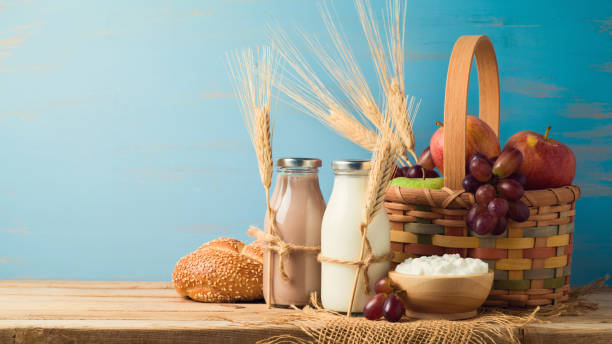
Post submitted by Akshita, Student Experience Ambassador
Step into the vibrant celebration of Shavuot, the Festival of Weeks!
Shavuot is one of the three pilgrimage festivals along with Passover and Sukkot. Shavuot is a fascinating holiday with agricultural and historical significance. Taking place seven weeks after the first day of Passover, this year Shavuot begins on the 11th of June, ending on the 13th of June.
Agriculturally, it marks the beginning of the wheat harvest. Originally, the first crop of fruits was brought to the Temple alongside an offering of two loaves of bread made from the fresh wheat harvest. Historically, it commemorates the anniversary of the day when the Jews received the Torah at Mount Sinai. This blend of significant cultural importance makes Shavuot an historical event. It is sometimes referred to as the Jewish Pentecost, to mark the fifty day period after Passover.
Celebrating Shavuot comes with a number of exciting traditions and customs. The Torah is studied all-night, with engaging discussions to encourage learning from others. Synagogues and homes are decorated with greenery to symbolise the lushness of Mount Sinai, and honour the agricultural origins of the holiday.
Traditionally, dairy foods are the main showstopper at a Shavuot table. With many interpretations of this custom, some common ones are the likeness of the Torah to milk and honey, and another is the hesitation of the people of Sinai on eating meat until they fully understood what the Torah said about it.

A few of the delicacies present at a Shavuot table include cheesecakes, blintzes, and other classics such as kugel.

Beyond the rituals and customs, lies the heart of Shavuot – a time for families and communities to gather, share stories, laughter, and love around tables laden with culinary delights. Shavuot is a time to pause and receive the Torah anew. Let Shavuot be a moment of reflection and renewal.
